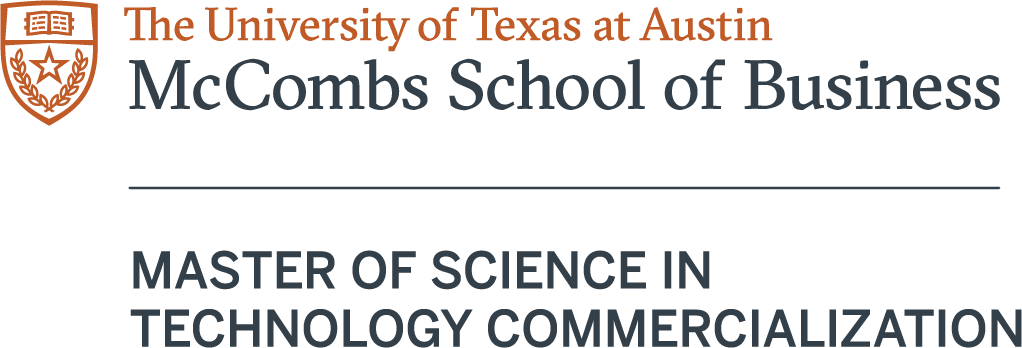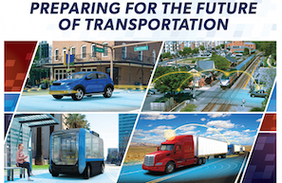 November 2018 Here’s what Happened at the Austin Forum in November Thank you to everyone who was able to attend our event at the Central Austin Library and to moderator Karla Taylor, City of Austin Transportation Department and her panel of experts:
Congrats to Melissa K. for her winning sli.do question, “Which cities do you admire in terms of how they’ve handled population growth, implemented transportation solutions, proposed forward-looking ideas, etc.?” Melissa won a SXSW Interactive badge donated by AF Board member Hugh Forrest and our friends at SXSW. Join us next month for a chance to win! Missed the event? Catch up here... 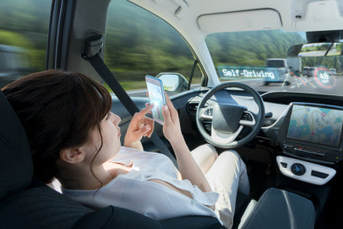 Top 5 Takeaways 1. Fully autonomous vehicles likely won’t reach 50% market penetration until 2040, so we have some time to get it right. And plenty of experiments are already underway: Ford is currently operating a pilot program in Miami with Domino’s and Postmates to see how customers experience unmanned delivery vehicles. Meanwhile, GM is running a ridesharing pilot in San Francisco using autonomous vehicles, but still placing a driver behind the wheel. 2. Building consumer trust is key. People first need to believe that the technology works in general, and that cars can operate on their own in specific environments (like mapped interstates). The second – and more complex – step is to convince people that autonomous vehicles are safe, and thanks to AI and machine learning, will continually become “better drivers.” Marketing can only do so much; creating this mindset will likely take time and personal experiences. 3. Austin is leading the way in some key areas. For example, the Riverside Corridor is the first site in the country to roll out connected vehicle reference implementation architecture (CVRIA) signal controllers. That’s a mouthful, and panelist Jason JonMichael explains it as “the latest and greatest standards the USDOT has for how intersections communicate with vehicles,” which is the cornerstone of any comprehensive fully autonomous vehicle solution. 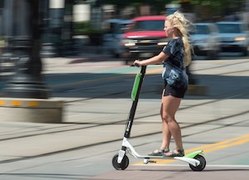 4. Scooters, man. No, you aren’t the only one they drive nuts. But they’re likely to be around for a while. 5. Austin has a way to go, but we’re taking the right steps. While panelists called out Amsterdam as the city that we could learn the most from regarding urban multi-modal transit, they were also bullish on Austin and its transportation initiatives, and optimistic about the future.  Special thanks to Trifecta on 3rd for another great after-party! Our attendees have shared they enjoy keeping the conversations going after our presentations and networking receptions, so keep an eye on our website for info on future after-parties with food, drinks, and connection. Join us on Tuesday, December 4th for Cities & Technology: Living With IoT, 5g, AI, Drones & More with speakers Jay Boisseau, Austin CityUP and Chelsea Collier, Digi.City. With more than 50% of the world's population now living in urban areas—and rising rapidly— cities are becoming increasingly more important. Rapid advances in technology and increasing urbanization present amazing opportunities for creating so-called “smart cities.” Cities will use these new, cutting-edge technologies, diverse sources of digital data, and accelerating advances in analytics and AI to improve how cities are designed, built, and operated. Jay Boisseau, founder and executive director of the Austin CityUP Consortium, and Chelsea Collier, smart cities expert and founder of Digi.City, will share recent advances and the potential future for emerging technologies to radically transform our cities and our lives. Join us to learn how new tech is changing the human experience and redefining what it means to live in a city. We welcome your participation! Please send us your questions, answers, and prognostications in advance. Tuesday, December 4, 2018 Austin Central Library 710 West Cesar Chavez Street Austin, TX 78701 5:15pm — Check-in and refreshments 5:45 pm – Doors open for seating 6:15 pm – Presentation 7:30 pm – Networking 8:15pm - Post-event networking at Trifecta on 3rd Admission to the Austin Forum is always free. 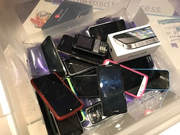 HELP US CLOSE AUSTIN’S DIGITAL DIVIDE The Austin Forum accepts donations of used smart phones and tablets at all our events. Donated devices get a factory reset and are set up as new by the team at Austin Pathways’ nationally-recognized “Unlocking the Connection” initiative, which connects every public housing resident with a digital device, digital literacy, and a free or very low-cost internet connection. Your donated smart phone can change lives and help close Austin’s digital divide, thanks to Austin Pathways.
0 Comments
Your comment will be posted after it is approved.
Leave a Reply. |











